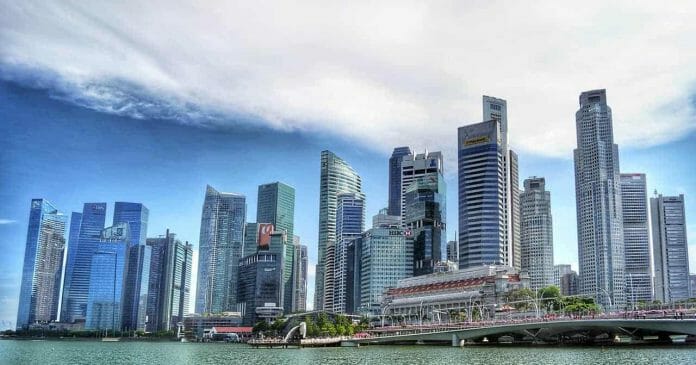Singapore’s core inflation fell to 5 percent year-on-year in March, the first time it has slowed since October 2022.
The moderation in core inflation from 5.5 percent in February and January – the highest in 14 years – was driven by smaller increases in services, food, retail, and other goods, said the Monetary Authority of Singapore (MAS) and the Ministry of Trade and Industry (MTI) on Monday (Apr 24).
Core inflation excludes accommodation and private transport costs.
The 5 percent figure in March is slightly lower than the 5.1 percent a Reuters poll of economists had forecast.
Overall inflation came in at 5.5 percent year-on-year in March, lower than the 6.3 percent recorded the month before.
This was mainly driven by lower private transport inflation.
FOOD, RETAIL INFLATION DOWN
In March, food inflation eased slightly to 7.7 percent year-on-year, from 8.1 percent in February.
This was due to smaller increases in the prices of prepared meals and non-cooked food prices, said MAS and MTI.
Services inflation, which fell to 3.4 percent from 3.9 percent, moderated on the back of lower point-to-point transport fares.
Inflation for retail and other goods also dipped to 3.3 percent from 3.8 percent as the prices of personal care products and household durables rose at a slower pace.
Inflation for accommodation eased slightly to 4.8 percent from 4.9 percent as the pace of increase in housing rents moderated.
Private transport inflation slowed from 12.1 percent to 8.6 percent due to a smaller increase in car prices and a steeper decline in petrol prices.
Electricity and gas inflation rose slightly to 12.2 percent from 12.1 percent, picking up on the back of a larger increase in electricity costs.
“RISKS REMAIN”
In a note on the economic outlook, MAS and MTI said: “Global supply chain frictions have eased, and consumer goods inflation in the advanced economies has moderated.
“Energy and food commodity prices have fallen below their peaks seen last year. As a result, Singapore’s import prices have declined on year-on-year terms,” the authorities added.
However, both MAS and MTI noted overall core inflation was still high.
On the domestic front, unit labour costs are expected to increase further in the near term; and businesses could continue to pass through accumulated such costs to consumer prices albeit at a more moderate pace.









